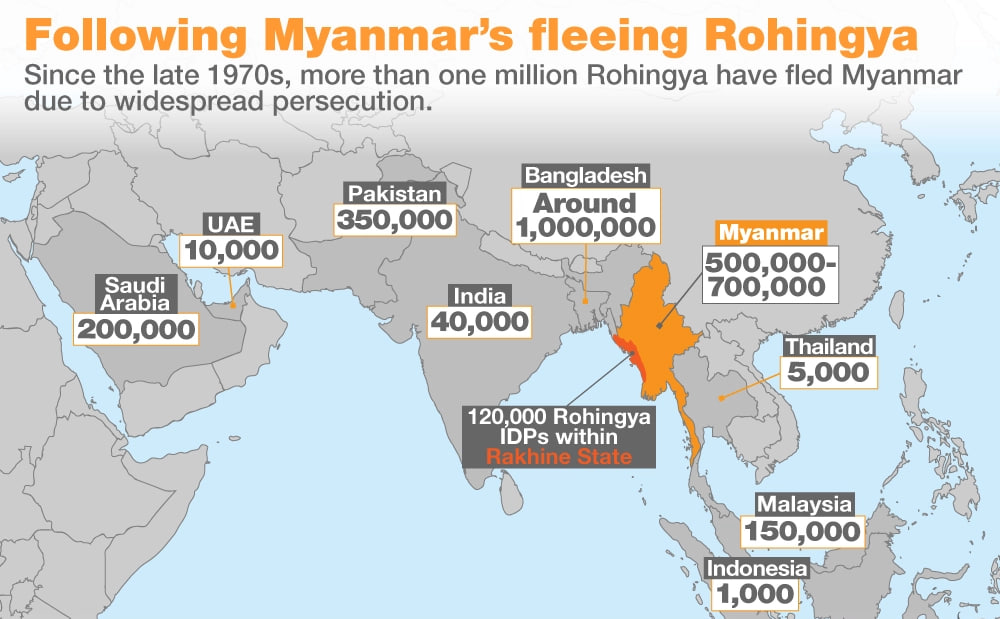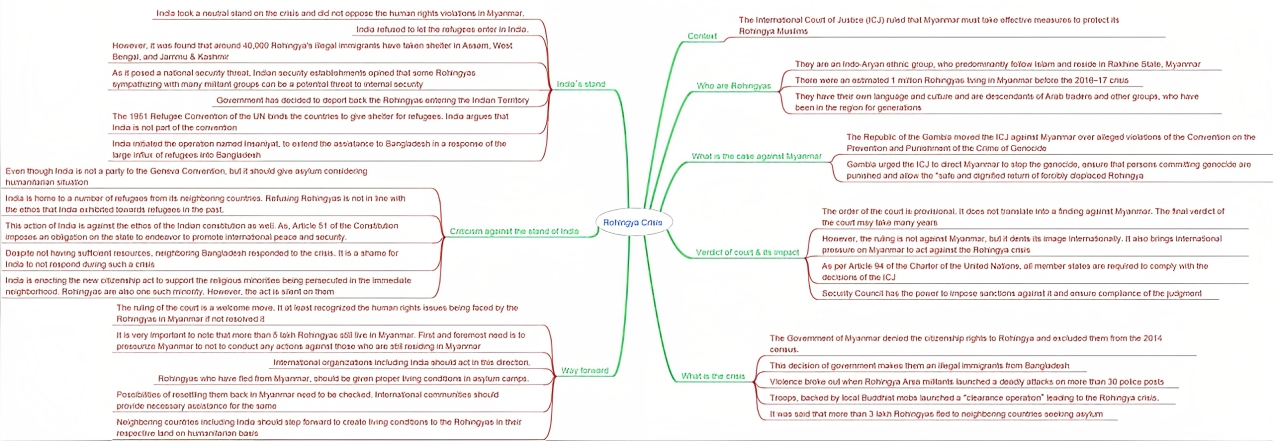Free Courses Sale ends Soon, Get It Now


Free Courses Sale ends Soon, Get It Now



Copyright infringement not intended
Context: According to a new report titled "A Shadow of Refuge: Rohingya Refugees in India", India is not granting leave permits to Rohingya refugees who have completed refugee status assessments with the UN Refugee Agency (UNHCR) and "gained approval from third countries for resettlement."
Details
Concerns Raised in the Report
Refusing exit visas
Uncertain future
Action against civil society
Arbitrary detention
Deportations
Poor living conditions
Downgrading UNHCR cards
Recommendations Made by the Report
Rohingya Crisis
About
|
Rohingya ● The Rohingya are predominantly Muslim ethnic groups who have lived in Rakhine State, Myanmar, for centuries. ● They have faced decades of discrimination and marginalization by the Myanmar authorities. ● They are denied citizenship, access to basic services, freedom of movement and other fundamental rights. ● They have also been subjected to repeated outbreaks of violence by the Myanmar security forces and Buddhist extremists, who view them as illegal immigrants from Bangladesh. |
2017 Genocide
Migration

India's Response to the Rohingya Crisis
Inconsistent and Controversial
No Refugee Policy
Concerns
Way Forward
Must Read Articles:
Refugee Policy of India: https://www.iasgyan.in/daily-current-affairs/refugee-policy-of-india
|
PRACTICE QUESTION Q. The Rohingya crisis is one of the most pressing humanitarian challenges in the world today. More than a million Rohingya refugees have fled from Myanmar to Bangladesh and other neighbouring countries, including India, where they face uncertain futures and precarious living conditions. What are the implications of hosting or rejecting the Rohingya refugees for India's security and stability? How can India leverage its role as a regional and global leader to address the root causes of the conflict and promote a durable solution for the Rohingya people? |
© 2024 iasgyan. All right reserved